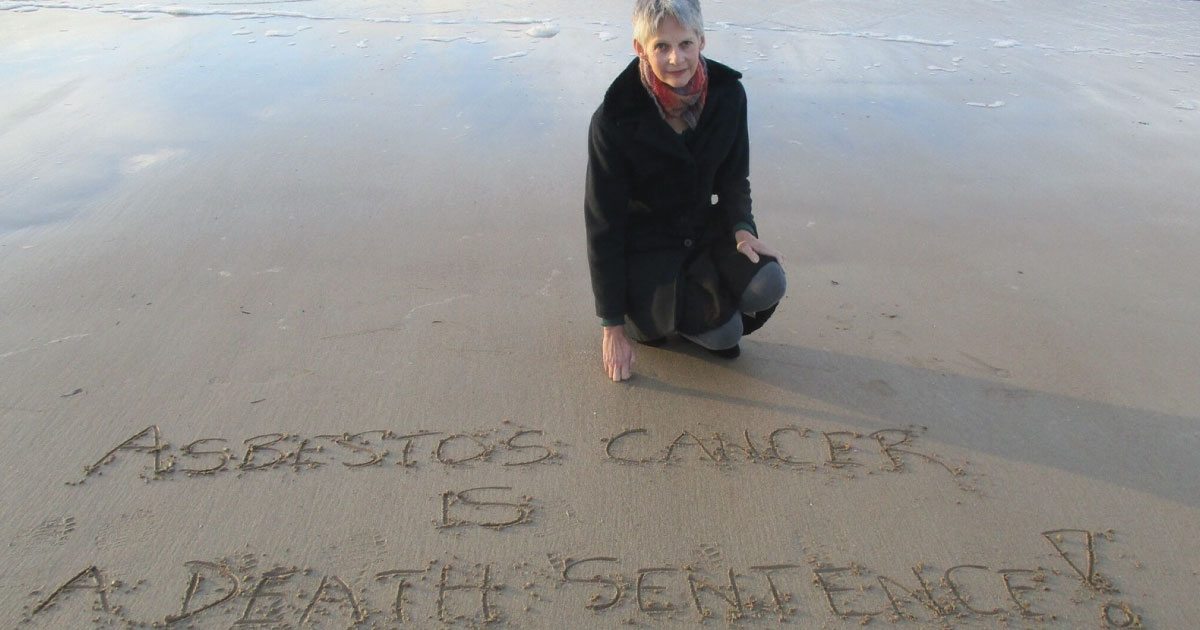Month: December 2015

Mesothelioma Community Eyes PD-L1 Inhibitor That Shows “Statistically Significant Survival” for Lung Cancer Patients
The mesothelioma community has been on cloud nine this year with clinical trials that have heralded good news across the globe. Immunotherapy treatments have moved into the spotlight, and it seems that instead of “if” the treatments become available to mesothelioma patients, it is “when.” Now, one more potential immunotherapy treatment for lung cancer and mesothelioma patients is on the horizon.
Genentech, a biotechnology company focused on developing treatments for patients with serious or life-threatening medical conditions, and a member of the Roche group, reported in a Sept. 26 press release that its investigational, anti-PDL1, immunotherapy drug atezolizumab (previously known as MPDL3280A), has seen positive results in two Phase II clinical trials for non-small cell lung cancer patients (NSCLC). Atezolizumab is designed to target PD-L1 expressed on tumor cells and tumor-infiltrating immune cells and to enable the activation of T cells, according to the company.
“Results from both of our studies in non-small cell lung cancer showed that measuring PD-L1 may help identify people most likely to respond to atezolizumab, and the majority of responses continued when these data were assessed,” said Sandra Horning, M.D., chief medical officer and head of Global Product Development.
Atezolizumab, an inhibitor of cell programmed death ligand 1 (PDL1), has received breakthrough designation from the U.S. Food and Drug Administration for use in the treatment of NSCLC in patients whose tumors have high expression of PDL1 and whose disease worsened during or after standard treatments.
In October, the FDA approved Keytruda for advanced NSCLC. Keytruda, marketed by Merck, is also a PD-L1 inhibitor that has been shown to be effective in controlling mesothelioma tumors in three-fourths of patients. Mavis Nye of England, a six-year mesothelioma survivor, is virtually cancer free after over one year of Keytruda treatments during a clinical trial. (Keytruda is still known as MK-3475 in the UK.) And Lou Williams of Australia who has been battling mesothelioma for over 13 years was given new life when she began Keytruda.
Breakthrough Therapy designation from the FDA is a process designed to expedite the development and review of drugs that are intended to treat a serious condition and preliminary clinical evidence indicates that the drug may demonstrate substantial improvement over available therapy on a clinically significant endpoint(s).
The two atezolizumab studies are POPLAR, a clinical trial comparing the efficacy of atezolizumab with docetaxel chemotherapy, and the BIRCH study testing the efficacy of atezolizumab in PD-L1 positive patients.
The results of the studies were reported in Vienna, Austria at the European Cancer Congress 2015 held Sept. 25 – 29.
Genentech reports the results of the POPLAR study “showed a statistically significant survival benefit compared to chemotherapy” in patients with recurrent NSCLC with medium and high levels of PD-L1. The patients lived 7.7 months longer than those who received docetaxel chemotherapy.
The company reports that in the BIRCH trial, “atezolizumab shrank tumors (objective response rate, ORR) in up to 27 percent (p=0.0001) of people whose disease had progressed on prior medicines and also expressed the highest levels of PD-L1.”
“Higher PDL1 expression correlates with greater response rates and could be used to identify patient for treatment,” said lead author Benjamin Besse, MD, from the Gustave Roussy Institute, Villejuif, France, during the presentation.
For the nearly 3,000 Americans diagnosed with mesothelioma each year, every breakthrough is critical. Although the scientists are not promising a cure with the new drug, patients are hopeful the drug will bring an increased survival and a nearly uninterrupted lifestyle for the patients undergoing treatment.
- See the Sept. 27 MedScape article for more details on the results of the two trials.
- See NCT01903993 on ClinicalTrials.gov to find out more about the POPLAR clinical trial.
https://clinicaltrials.gov/ct2/show/study/NCT01903993?term=POPLAR&rank=1#locn
- See NCT02031458 on ClinicalTrials.gov to find out more about the BIRCH clinical trial.
https://clinicaltrials.gov/ct2/show/NCT02031458?term=BIRCH+MPDL3280A&rank=1
Sources:
- Atezolizumab
https://www.gene.com/media/press-releases/14607/2015-09-26/two-positive-studies-of-genentechs-inves - European Cancer Congress 2015
http://www.esmo.org/Conferences/Past-Conferences/European-Cancer-Congress-2015
Advice to Mesothelioma Caregivers: Trust in Others
Watching someone you care about struggle with a mesothelioma diagnosis is an unbearable situation. You, yourself, are probably having a hard time as well, but feel as though you have to keep it all inside. Trust me when I say that this won’t help. It won’t make you a better caregiver, it won’t make you more supportive, and it won’t change your new reality. It is important to have some sort of outlet to express your feelings also.
By making sure that you are being taken care of, you will be more capable of helping the person you love. Find trusted friends and have an open and honest conversation. If you like to exercise, go for a long walk or jog. If art is more your speed, go to a museum or a class. You have to find what outlet works best for you individually. If you’re not sure what this may be, try something brand new! You might find joy in the most unexpected activities.
Also, it is very important to stay, or get, in touch with your faith. It will be the stronghold that carries you through this, and any tough times that you encounter throughout your life. Remember, it’s ok to ask for help. There are many support groups and organizations out there that will be able to assist you. The key is to find out what you need, and act upon this realization.

The Magic of the Holidays is Carried on in the Next Generation
This time of year can be quite trying for someone who has lost a loved one to mesothelioma. From Thanksgiving to the New Year, it is a time when family and friends get together to celebrate the beauty and love of the holidays. At times, there are treasured stories retold of those we mourn; then, there are the times when we feel an emptiness as we gaze at the chair that used to be occupied by someone we cared for deeply.
For me personally, that time of grief really begins in October at the anniversary of my Dad’s passing. It is a time when I look back fondly on all of our memories, but then I realize quickly that the first weeks without him were largely over the most festive times of the year. We went through the motions that first year, trying our best to carry on our same customs like we know Dad would have wanted. It was difficult, but we somehow muddled through. Now, we have had some time to “adjust” and still try to keep things as traditional as possible.
Last year, with the addition of my daughter, things changed again; this time, for the better. She brings so much joy and light to the lives of my family and friends, that it’s not hard to realize that she takes after her grandfather. My Dad was always the one who brought everyone together; now, it seems as though the torch has been passed on to her. Seeing her makes me feel as though Dad is still with me in a very real way, making Christmastime magical all over again.
Thanks to All Mesothelioma Caregivers
November is National Family Caregivers Month. Being in the same month as Thanksgiving, this is a group that deserves our thanks – the unpaid caregivers. It is difficult to be the patient, or the sick one of the family, but caregivers have their own challenges. Over 90 million Americans care for others who have a disability, disease, chronic condition or are elderly. Caregivers range from parents taking care of sick children to grown adults taking care of their elderly parents.They cross all socio-economic demographics, but the majority are women.
Oftentimes taking care of a mesothelioma patient is a sudden role that you did not anticipate. One day you and your spouse are living your everyday life, and the next you have been dealt with a serious illness that needs action. Not only are you your spouse’s support, but you are also the sounding board for decisions. Where do we go? What kind of treatment should we choose?
It sounds like a few easy questions, but it is not. It is a tough disease and the questions are not easy to answer. So once you have made decisions and the focus is totally on the patient – what about you, the caregiver? At the mesothelioma center where I work, we feel the caregiver is just as important as the patient and we try to provide support for them as well. But the most difficult thing for the caregiver is to realize that they too are important.
From my Experience of Caregiving, it is a tough job to say the least. It is stressful emotionally, physically and financially. There are a lot of support options for mesothelioma caregivers. If you are at a mesothelioma center, there are probably onsite support groups. You may not think you have anything to add, but consider just showing up and seeing what others say. You may get some advice about how others are handling this challenging role.
Another often overlooked issue is physically taking care of yourself. Caregives must make sure to eat healthy and take an occasional walk. A thirty minute walk can do wonders. It can take you away from the hospital setting, allow you to inhale fresh air and clear your mind. Caregiving is hard work so take breaks. If someone offers to lend a hand, let them, you can always reciprocate sometime. Learn how to communicate effectively with the medical team. Write down your questions. Keep them concise and prioritize which questions you want answered first.
There are many tips that can help the caregiver so please try out a support group or reach out to a social worker or clergy. Above all, give yourself credit for doing the best you can for your loved one.
Visit the following websites designed to support the family caregivers: Generations United, and National Alliance for Caregiving.
Thank you for all you do for your loved ones!

Free Mesothelioma Patient & Treatment Guide
We’d like to offer you our in-depth guide, “A Patient’s Guide to Mesothelioma,” absolutely free of charge.
It contains a wealth of information and resources to help you better understand the condition, choose (and afford) appropriate treatment, and exercise your legal right to compensation.
Download Now